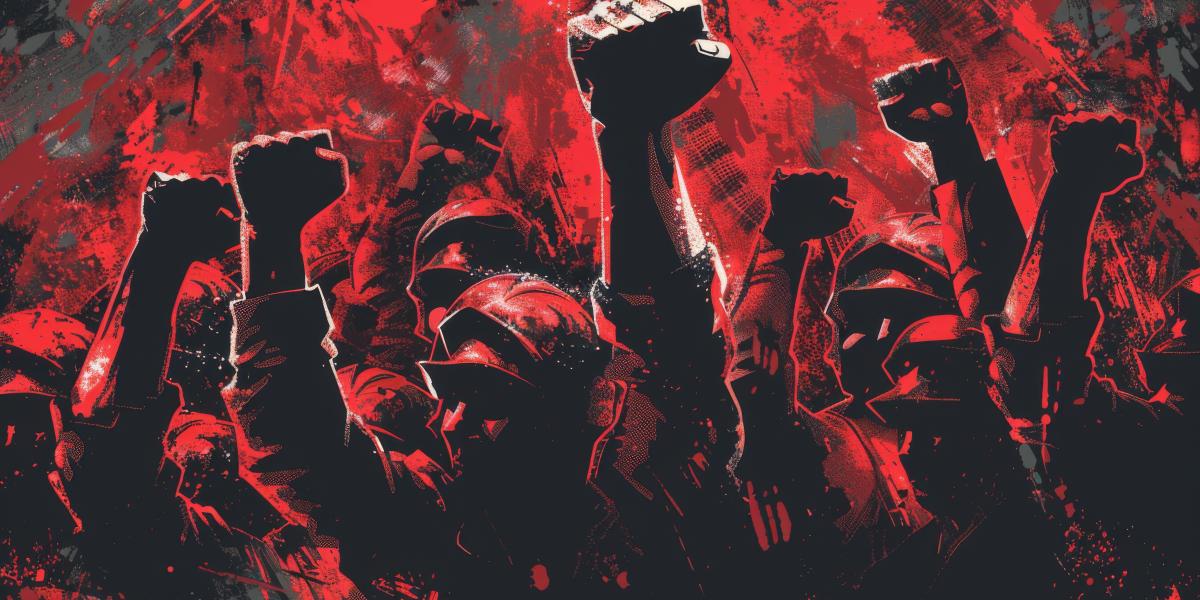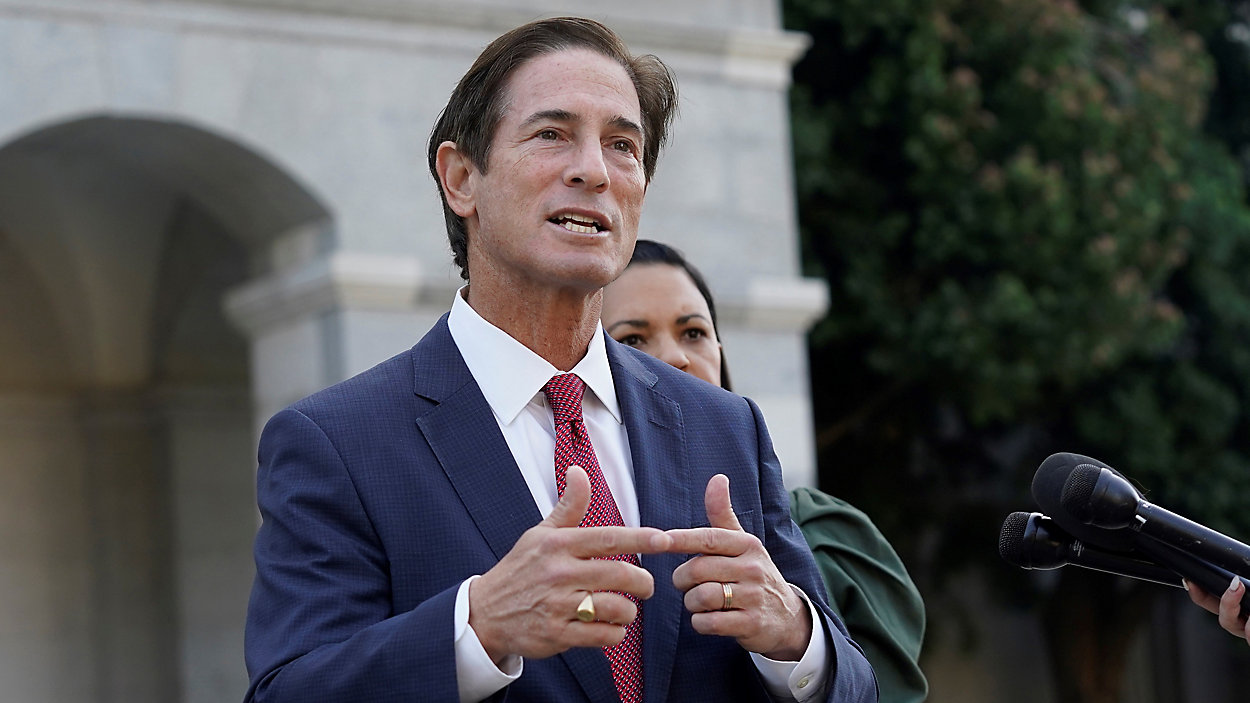To Marxists, everything is inherent and inevitable. Human beings are inherently constrained to act as they do by their prevailing material conditions, leading inevitably to class conflicts. They view human beings as captive to the ideology of their class. Karl Marx argued that, owing to inherent class conflict, individuals cannot view problems objectively—or even individually or idiosyncratically—because each individual is necessarily compelled to view the world through the lens of his class. Matters being thus inherent and inevitable, the edicts and pronouncements of Marxism are inescapable and incontrovertible.
Today, establishment theorists and court intellectuals extend this approach to explaining racial conflict. Although they do not describe themselves as “Marxists,” and on the contrary, ferociously deny any accusation that they are Marxists, nevertheless they draw upon Marx’s theoretical framework to argue that oppressed races are constrained by racial injustice and have no free will or agency as their humanity has inevitably been crushed out of them by racial oppression and exploitation. As they see it, given the material conditions of oppressed people, we cannot expect the oppressed to exhibit the same ability to make individual decisions as other human beings would—the behavior and actions of the oppressed are not of their own choice but merely a collective reaction to their oppressors. For example, Eric Foner writes that after emancipation in the United States, “the experience of bondage remain deeply etched in blacks’ collective memory.” In his view, the “collective memory,” not individual experience, tells us how to understand this history.
This approach has shaped the discourse of “social justice” in which race relations, like all aspects of social evolution, are constructed in conditions of violent conflict. This explains why, regardless of crime statistics, modern liberals under the influence of their overwhelmingly Marxist college indoctrination view crime as not really the fault of the oppressed criminals. The oppressed are not able to determine their own actions, but are compelled by “systemic oppression” to commit crimes.
In his book An Austrian Perspective on the History of Economic Thought, Murray Rothbard observes that, “It is difficult to state [Marx’s] position without rejecting it immediately as drivel.” He criticizes Marx’s argument that social relations are determined and shaped by class conflict: “To Marx, each individual’s thinking, his values and theories, are all determined, not by his personal self-interest, but by the interest of the class to which he supposedly belongs.” He therefore rejects Marx’s argument that human choices are determined by “class conflict embedded in historical materialism.” Further, he observes that the “vague and fuzzy” nature of Marx’s ideology makes it difficult to pin down with precision the implications of Marxist interpretation, which allows its adherents an easy escape when their predictions prove to be fallacious: that was not “real” Marxism. As Rothbard explains:
Marx’s terminology is invariably vague and fuzzy, and his allegedly law-like linkages of the dialectic virtually non-existent. Often they are mere unsupported assertion. As a result, the Marxian system is not only a tissue of fallacies, but of flimsy fallacies and linkages as well.
One example is the use of “dialectical materialism,” which conveniently allows Marxists to defend contradictory claims at the same time. Rothbard explains:
One crucial weapon wielded often by Marxists and by Marx himself was ‘the dialectic’. Since the dialectic allegedly means that the world and human society consist of conflicting or ‘contradictory’ tendencies side by side or even within the same set of circumstances, any prediction can then be justified as the result of one’s deep insight into whichever part of the contradictory dialectic might be prevailing at any given time. In short, since either A or non-A can occur, Marxians can safely hedge their bets so that no prediction of theirs can ever be falsified.
What Rothbard identifies as Marx’s notions of “inherent class conflict” and “inherent struggles between economic classes” are the same essential concepts now said to be supplemented by inherent racial conflict. For example, Marxist interpretations of the Old South claim that relationships between master and slave were based on violence, and were, therefore, inevitably and unavoidably expressed through violence caused by the prevailing material conditions. But due to the dialectic, in the midst of this violence we should not be surprised to find “exceptional cases” of loyalty, devotion, and even bonds of love. Marxist theories of social relations constructed upon violence cannot be disproved by pointing to bonds of love because to them, those are just rare cases that form part of the dialectic.
Eric Foner, in that way, depicts violence as an inherent aspect of the master-slave relationship, and depicts this violent relationship as the “collective memory” of black people. It is this “collective memory” that in his view “took particular offense at contentions that American slavery had been unusually benevolent and that ‘harmonious relations’ had existed between master and slave.” Slave narratives recalling happy times are deemed to be an assault on the “collective memory.” Foner cites “whippings, separation of families, and countless rituals of subordination” as the only authentic collective memory, spawned by violence, and also insists that the collective memory rejects any suggestion of experiencing happiness. History is inherently determined by this “collective memory,” constructed by reference to Marxist theories of racial conflict.
In addition to this attempt to collectivize human action, Marxist interpretations of the Old South also fail to explain why oppression would deprive a slave of his free will, individual consciousness, and individual choice, while even worse forms of oppression and coercion would not deprive a serf or factory worker of his humanity in the same way. Yet often the conditions in which serfs were held were worse than the conditions of chattel slavery. If the deprivation of free will results from oppression, we would expect all oppressed people to suffer that deprivation, not just the oppressed people labeled as “slaves.” Yet even the Marxist WEB Du Bois noted, in his book Black Reconstruction in America, that although slavery was by no means “idyllic,” the material conditions were often better than those of other coerced workers:
The slavery of Negroes in the South was not usually a deliberately cruel and oppressive system. It did not mean systematic starvation or murder… The victims of Southern slavery were often happy; had usually adequate food for their health, and shelter sufficient for a mild climate. The Southerners could say with some justification that when the mass of their field hands were compared with the worst class of laborers in the slums of New York and Philadelphia, and the factory towns of New England, the black slaves were as well off and in some particulars better off. Slaves lived largely in the country where health conditions were better; they worked in the open air, and their hours were about the current hours for peasants throughout Europe.
Rather than attempt to understand human experience as part of a “collective consciousness” which is determined by material conditions, we should instead recognize that each human being has the same agency and capacity to make decisions as any other. The human experience is not inherently determined by race or class or any other collective identity. Hence Rothbard observes that surely “Even Marx must dimly recognize that not ‘material productive forces’, not even ‘classes’, act in the real world, but only individual consciousness and individual choice.”
























